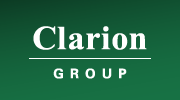You are here
Home ›Clarion Group Declares Subsidized Contractors Poor Fit for the Food Management Industry
Companies whose food service operations are managed by contractors on a subsidized basis may not be receiving full value financially or the best possible meals and services, warns Tom Mac Dermott, president of Clarion Group, a food service management consulting firm.
“The contractors who operate corporate food services have their own interests and profit margins as their primary concerns, as does any other businesses,” he says. “If they have no incentive to do better, they’re likely to provide ‘good enough’ services – good enough to retain the account and maximize their profits from the operation.”
The company that wants the best possible meals and service at the lowest cost consistent with its financial parameters has to provide its vendor with the incentive to do so, according to Mac Dermott.
“Just paying a management fee, whether fixed monthly, percentage of sales or similar isn’t enough. The vendor can do just enough to avoid losing the contract,” he explains. “The most effective approach to assuring the best possible and most cost-effective operation is to base the vendor’s compensation on its operational and financial performance – an incentive-based management fee structure.”
When Clarion Group advise corporate food service clients, the firm constructs a three-sided fee structure, Mac Dermott says. This consists of:
• A base fee – an amount to cover the vendor’s operating costs, but not a profit.
• An operational performance fee, the vendor’s primary source of profit for its services, based on several “key performance indicators” (KPIs) and periodic operational audits. The higher the score on these measurements, the higher the fee.
• A financial incentive fee, based on financial results compared to pre-determined objectives. The vendor can be awarded a percentage of any reduction in subsidy below the objective or see a percentage of any costs above the objective deducted from its fee. Subsidy reduction can be achieved through increasing sales as well as controlling costs.
“This approach accomplishes the objectives of both the company and the vendor,” Mac Dermott says. “The vendor is assured it can cover its cost of operation. To earn a profit, it must exceed stated operational goals, measured for example by customer satisfaction survey scores, increased customer counts and high scores on operational performance audits. At the same time, it must actively work to increase sales and operate efficiently to meet financial objectives.”
“Where we have established and administer incentive fee programs, the operator, the client and our consultants have successfully collaborated to ensure a high level of corporate food service operation within our client’s budget for these services,” he adds.
About Clarion Group
Clarion Group is an independent consulting firm that advises companies, professional firms, colleges and universities, independent schools and institutions in the management, operation and improvement of their in-house employee/student food services, catering, conference, lodging and related hospitality services throughout the U.S. and Canada.
For information, contact:
Tom Mac Dermott, FCSI, President
Clarion Group
PO Box 158, Kingston, NH 03848-0158
603/642-8011 or TWM@clariongp.com
Website: www.clariongp.com
Talk to us about your vision for your food service operation — Contact Clarion Group
